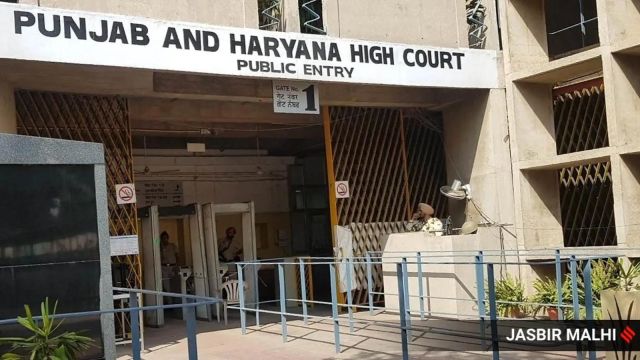Police officers not merely postmen, Punjab and Haryana HC cautions on judicial burden
Directs DGP Punjab to file affidavit on provisions for failure of an IO to perform duties
 The directions were issued by Justice Alok Jain while hearing a bail petition filed by Sarban Singh, booked in December 2023 under the NDPS Act at Subhanpur Police Station, District Kapurthala. (File)
The directions were issued by Justice Alok Jain while hearing a bail petition filed by Sarban Singh, booked in December 2023 under the NDPS Act at Subhanpur Police Station, District Kapurthala. (File)Stating that “Investigating officers of police authorities are not merely postmen, who simply forward complaints to the courts, thereby adding unnecessary pressure to the judicial system,” the Punjab and Haryana High Court has directed the Director General of Police (DGP), Punjab, to file an affidavit outlining the provisions, rules, or regulations addressing the consequences when an Investigating Officer (IO) fails to perform their duties in accordance with the law. The matter has been adjourned to March 5, 2025.
The directions were issued by Justice Alok Jain while hearing a bail petition filed by Sarban Singh, booked in December 2023 under the NDPS Act at Subhanpur Police Station, District Kapurthala.
The petitioner’s counsel, Aditya Anand, argued that during cross-examination, the Investigating Officer admitted the petitioner was implicated solely on the basis of secret information. No investigation was conducted to establish a connection between the petitioner and Paramjit Singh, from whom the contraband was recovered. Anand further stated that no evidence links the accused to the case. He also submitted that the petitioner has been in custody since May 13, 2024, for over six and a half months, and sought regular bail.
The State counsel, meanwhile, informed the Court that eight out of ten witnesses had been examined and the next trial date was scheduled for January 16, 2025.
After hearing the arguments, the Bench noted that the recovery was not made from the petitioner, and the IO’s testimony had exonerated him. Observing that the trial was likely to be prolonged, the Court granted regular bail to the petitioner, stating that continued custody served no purpose.
Before concluding the order, Justice Jain expressed concern over false and frivolous cases being filed, noting that such actions not only burden courts but also ruin lives. He said, “Lodging an FIR is the starting point where the expertise of the Investigating Officer should reveal the truth. However, the lack of accountability results in actions that harm innocent citizens.”
In the present case, Justice Jain observed that the petitioner should have been exonerated as soon as the IO admitted the lack of evidence against him. Instead, the accused endured unnecessary trial proceedings, harassment, loss of resources, and irreparable damage to his reputation, affecting both his future employability and his family.
The Court emphasised that the failure of the IO to perform their duties violates the fundamental rights of a citizen to live with dignity. Despite this, there are no mechanisms to hold IOs accountable, allowing them to evade consequences for their lapses.
Justice Jain clarified that the intention was not to question the integrity of the police but to ensure accountability. “Frivolous FIRs arise from the impunity with which some IOs act. Such issues could be mitigated if IOs conducted investigations diligently and sincerely, adhering to the law,” the Court observed.
The Court directed the DGP, Punjab, to file an affidavit outlining the provisions for addressing cases where an IO fails to fulfil their duties.







